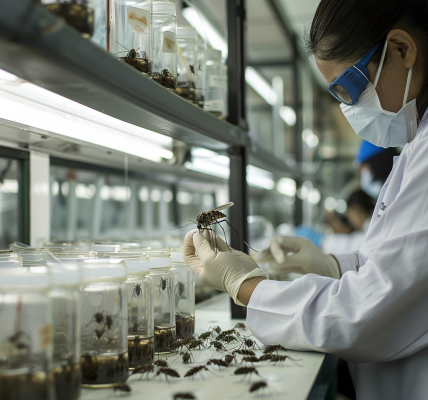Recent research has unveiled a significant discovery regarding the transmission of type 1 diabetes (T1D) from parents to children, particularly highlighting the role of fathers in this genetic landscape. A comprehensive study conducted by researchers at Cardiff University and the University of Exeter in the UK has revealed that children are nearly twice as likely to develop T1D if their father has the condition compared to when their mother is affected.
Type 1 diabetes is an autoimmune disorder where the body’s immune system mistakenly attacks insulin-producing cells in the pancreas, leading to little or no insulin production. This chronic condition typically manifests during childhood but can also develop in adults. The exact cause of T1D remains unclear, but it is believed to arise from a complex interplay of genetic predisposition and environmental triggers, including viral infections.
According to the findings of this extensive study, fathers with type 1 diabetes pose a significantly higher risk of passing the condition to their offspring. Specifically, the research indicates that a type 1 diabetic father is 1.8 times more likely to have children with the disease than a type 1 diabetic mother. This intriguing revelation suggests that maternal diabetes may confer a protective effect against the development of T1D in children.
Dr. Lowri Allen, a researcher from Cardiff University’s Diabetes Research Group, emphasized the importance of these findings. “Individuals with a family history of type 1 diabetes are 8-15 times more likely to develop the autoimmune condition. However, studies have consistently shown that the risk is significantly higher when the affected relative is the father rather than the mother,” she stated.
The study involved a meta-analysis of five previous studies, aggregating data from 11,475 individuals diagnosed with T1D between the ages of zero and 88. The researchers meticulously compared the incidence of the condition in children based on whether their fathers or mothers had T1D. They also examined various factors, including the age at which the parents were diagnosed and the timing of the parent’s diagnosis in relation to the birth of the child.
In addition to these comparisons, the researchers analyzed genetic risk scores derived from over 60 genes associated with type 1 diabetes. The results consistently showed that individuals with T1D were 1.8 times more likely to have a father with the condition than a mother, regardless of whether the diagnosis occurred in childhood or adulthood.
This research opens up new avenues for understanding the genetic factors contributing to type 1 diabetes and suggests a need for further investigation into the protective mechanisms that maternal diabetes might offer. The findings could lead to innovative strategies aimed at preventing T1D, particularly in children with a family history of the disease.
As the scientific community continues to explore the complexities of type 1 diabetes, this study underscores the critical role that parental health plays in the risk of developing this condition. By unraveling the genetic and environmental influences, researchers hope to pave the way for better prevention and management strategies for those at risk.
With the incidence of type 1 diabetes on the rise globally, understanding its transmission dynamics is more crucial than ever. This research not only sheds light on the hereditary aspects of the disease but also emphasizes the need for targeted interventions that consider the unique contributions of both mothers and fathers.





